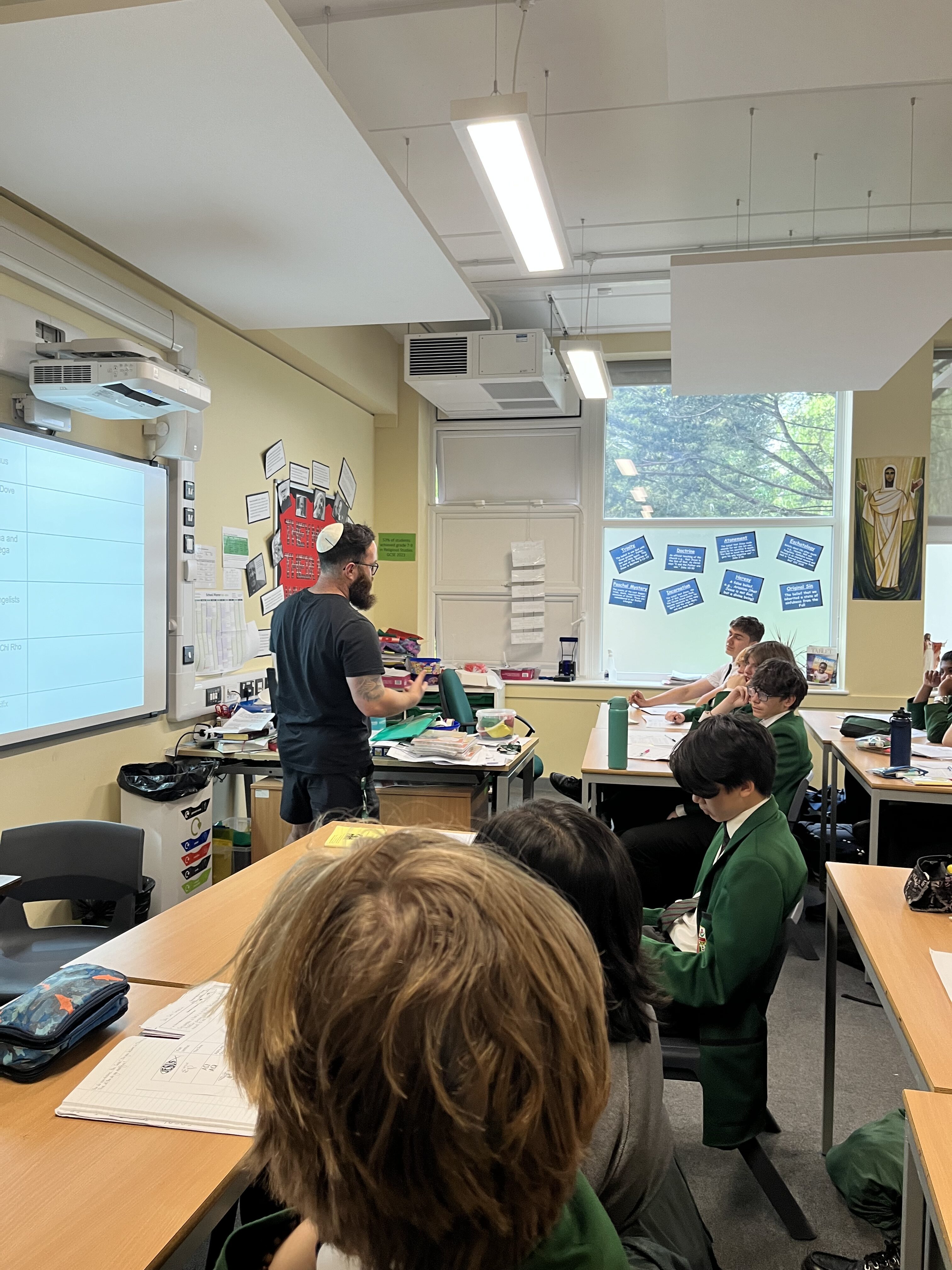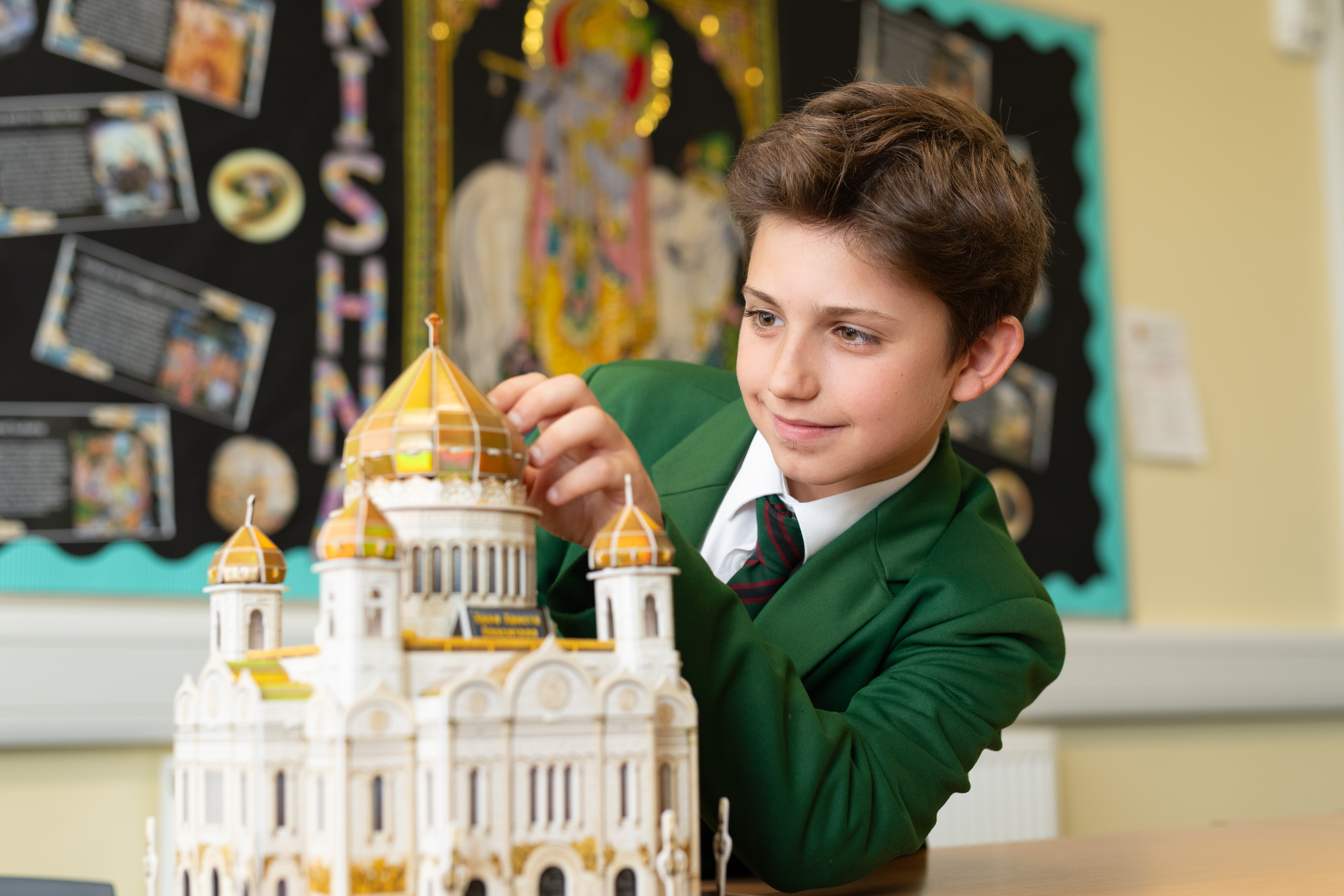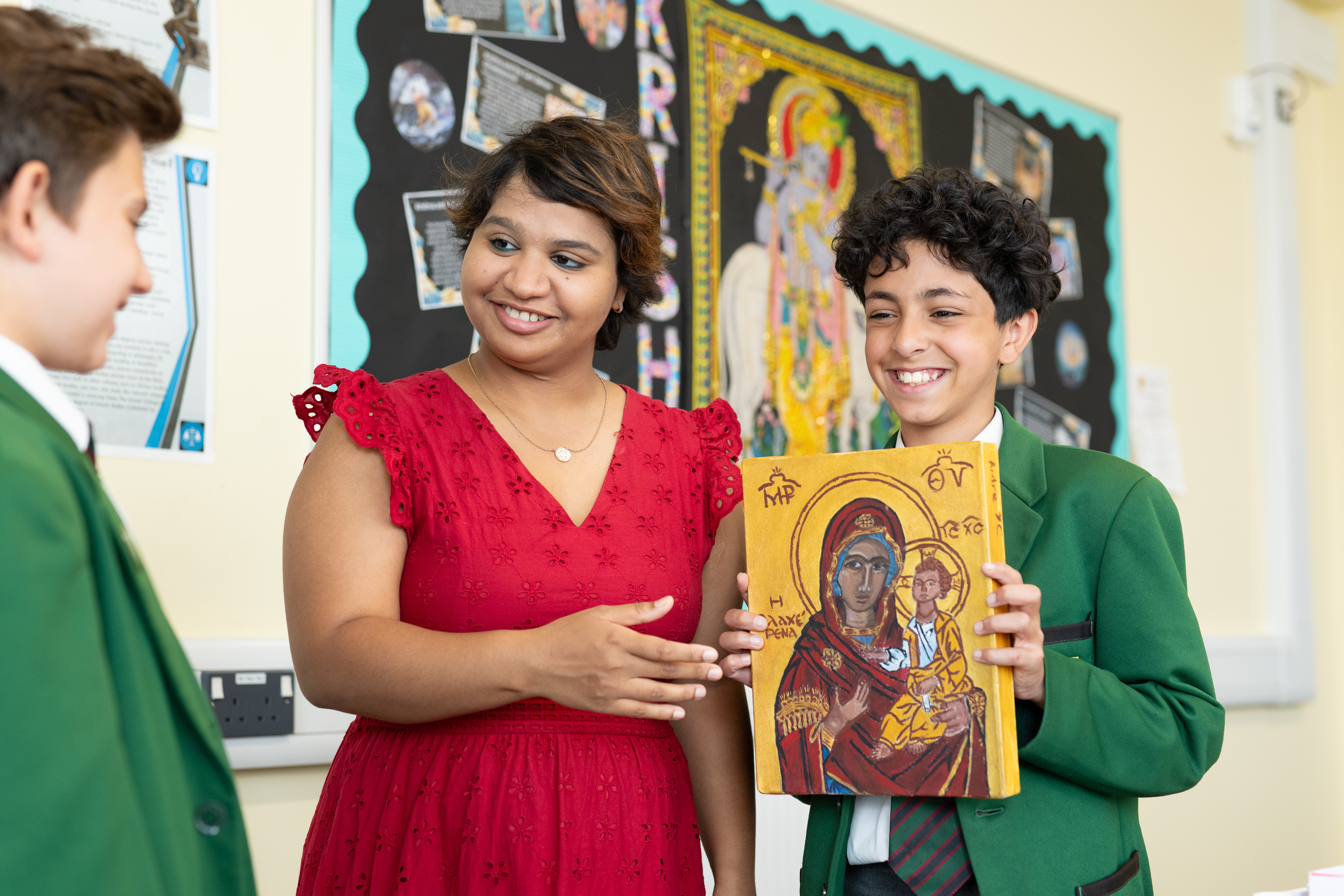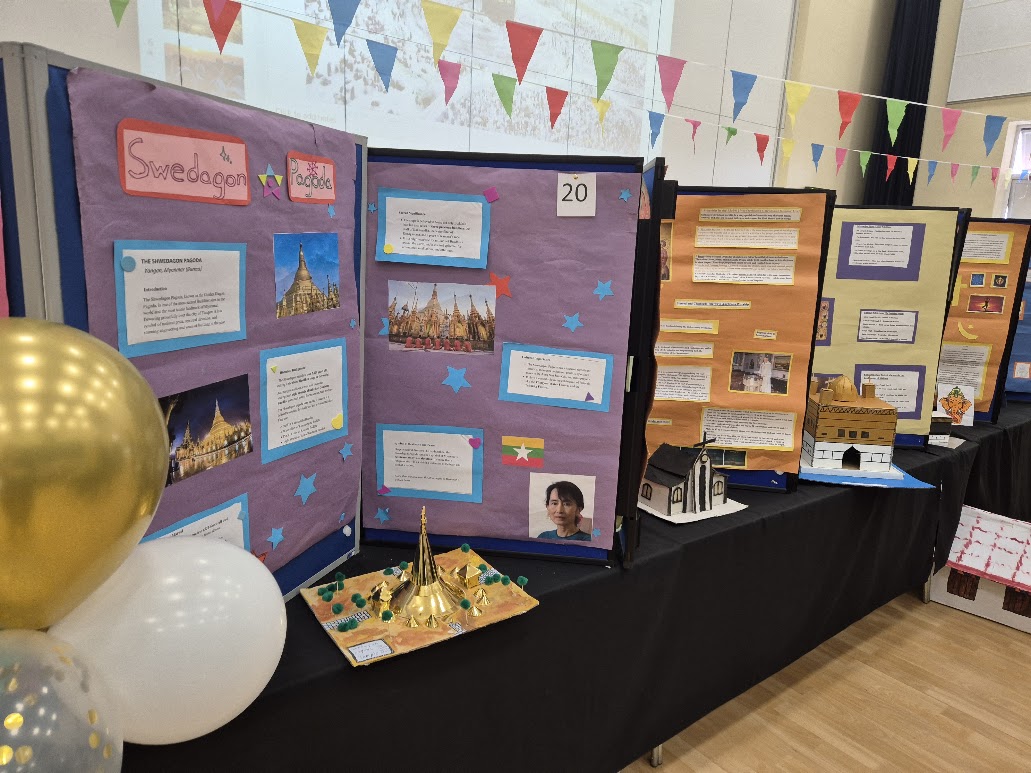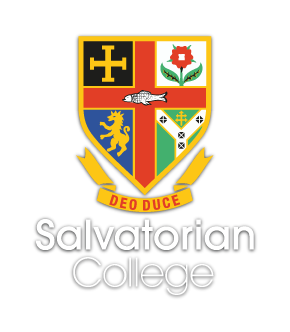Religious Education
Religious Education
“Religious education is the soul of education, the heart of culture, and the force that will help build a society of peace and justice.” – IPope Benedict XVI
At Salvatorian College, the intent of our Religious Education curriculum is to nurture the whole person – academically, spiritually, morally, and socially. Inspired by Pope St. John Paul II’s vision that RE is the “core of the core curriculum” in Catholic education, we aim to:
- Deepen pupils’ knowledge and understanding of the Catholic faith, enabling them to grasp core beliefs, practices, and teachings central to Catholic life.
- Foster respect and appreciation for other world religions – including Judaism, Islam, Hinduism, and others – to cultivate understanding and empathy for those of different traditions and beliefs. We recognise the importance of living in a diverse, multi-faith society, and we prepare our students to be informed, respectful, and engaged citizens of the world.
- Develop religious literacy, enabling students to think ethically, theologically, and philosophically, and to communicate their understanding with confidence and clarity. This includes building a rich vocabulary of religious terminology and concepts.
- Promote academic excellence through engaging, challenging, and comprehensive content, inspiring a love of learning and critical reflection on moral, ethical, and philosophical issues.
- Encourage personal spiritual growth, helping pupils reflect on their own faith journey and consider the impact of belief on everyday life. We provide opportunities for prayer, worship, and retreat, supporting students in developing a deep and reflective spirituality.
- Build a sense of responsibility and community, empowering students to act justly, care for the environment, and contribute positively to both the school and wider society.
RE Gold Quality Assurance Mark

This prestigious recognition celebrates our commitment to high-quality Religious Education, outstanding teaching, and the meaningful development of our students’ spiritual and moral understanding.
An exceptional achievement for our school community! ✨
Our Staff
Ms N Hajiantoni – Head of Department/Lead of Catholic Life
Ms D Williams – Teacher of RE
Ms C Sequira – Teacher of RE
Ms O Thomas – Teacher of RE
Dr O Tromans – Teacher of RE
Key Stage Three
At Salvatorian College, KS3 Religious Education follows a structured curriculum grounded in the narrative of salvation history, designed to deepen pupils’ understanding of Catholic beliefs and practices while also fostering respect for other faiths.
Each year is organised into six curriculum branches, which are revisited and expanded upon as students progress through Years 7 to 9:
- Creation and Covenant
- Prophecy and Promise
- Galilee to Jerusalem
- Desert to Garden
- To the Ends of the Earth
- Dialogue and Encounter (including the study of Islam in Year 7, Hinduism in Year 8, and Judaism in Year 9)
Pupils develop key skills such as analysis, empathy, evaluation, debate, and the application of Christian teachings and viewpoints. Assessment is continuous, with marked classwork every two to three weeks, graded tasks every half term, and termly assessments.
The department ensures that all pupils feel included and engaged, regardless of their religious background, making learning both academically challenging and personally meaningful.
Key Stage Four
At Key Stage 4, our pupils’ attainment and progress in Religious Education are outstanding. All students follow the Edexcel Religious Studies Specification A, which offers a comprehensive and engaging exploration of Catholic Christianity alongside the study of Judaism and key philosophical and ethical themes.
Our KS4 curriculum is designed to:
- Deepen students’ understanding of Catholic Christianity, covering core beliefs, teachings, and practices.
- Expand pupils’ knowledge of Judaism as a second religion, enriching their appreciation of religious diversity.
- Develop critical thinking and ethical reasoning through the study of Philosophy and Ethics based on Catholic Christianity. In Year 11, students explore arguments for the existence of God, key moral principles, and contemporary issues such as relationships and family life in the 21st century.
We provide students with the analytical tools needed to examine ethical and philosophical issues critically. Pupils learn to:
- Explain the Catholic position on a range of theological and moral topics.
- Compare and contrast different religious and non-religious perspectives.
- Make clear links between beliefs, teachings, and practices, demonstrating a sophisticated understanding of the connections within and across religious traditions.
At KS4, we use diverse methods—from debates and discussions to independent research and reflection—to keep pupils engaged and challenged. Each topic ends with rigorous assessments using Edexcel GCSE criteria, ensuring pupils are fully prepared for their final exams. This approach not only delivers excellent academic outcomes but also equips students with the skills to think theologically, reason ethically, and engage with the world around them.
Key Stage Five
At KS5, Core Religious Education is compulsory for all pupils in our Catholic school, with one timetabled lesson each week. These sessions encourage students to think deeply about faith, morality, and the modern world. Topics include science and religion, medical ethics, charity and Catholic Social Teaching, love and marriage, human trafficking, and other contemporary ethical issues. Pupils also have the opportunity to take part in enrichment experiences such as visits to Westminster Cathedral and Tyburn Convent.
We also offer AS and A Level Religious Studies, following the Edexcel specification. Students explore Philosophy, Ethics, and New Testament Studies, developing critical thinking, reasoning, and evaluative skills. In addition to classroom learning, pupils benefit from tutorials and guest lectures delivered by visiting speakers and external organisations, enriching their understanding of religion in today’s world.
Links to Future Paths
Exam Board
Pearson Edexcel – GCSE Religious Studies
Recommended Textbook
Faith and Practice in the 21 century by Victor W. Watton
Edexcel GCSE (9-1) Religious Studies: Catholic Christianity Specification A and revision guide which can be purchased at a significant discount through ParentPay.
Enrichment Opportunities in Religious Education
At Salvatorian College, Religious Education extends far beyond the classroom, offering pupils enriching experiences to deepen their faith, broaden their understanding of world religions, and promote moral and social responsibility.
We offer a range of trips, including pilgrimages to Rome, visits to local churches, synagogues, Tyburn Convent, Walsingham, and other places of worship. The annual RE Farye brings key themes to life, sparking curiosity and engagement.
We welcome speakers from various religious traditions, who share how they practice their faith, fostering respect and dialogue. The Gideons also visit to speak about the significance of the Bible, enriching students’ scriptural understanding.
Pupils are encouraged to live out their faith by engaging in charitable initiatives (e.g. Christmas and Easter Appeals) and social action, such as writing letters to MPs and signing petitions on key moral and social issues, developing a sense of responsibility and active citizenship.
Each KS3 and KS4 class participates in a retreat day, offering time for prayer, discussion, and reflection on personal faith and ethical action. These retreats foster team spirit and mutual responsibility.
Pupils contribute to the school’s spiritual life through roles like liturgical prefects, planning prayer services and promoting spiritual growth. Each form celebrates Mass in the school chapel, providing time for reflection and renewal.
Through these opportunities, our Religious Education department inspires pupils to understand and live out their faith, cultivating a lifelong commitment to spiritual growth, service, and justice.
RE Gallery
